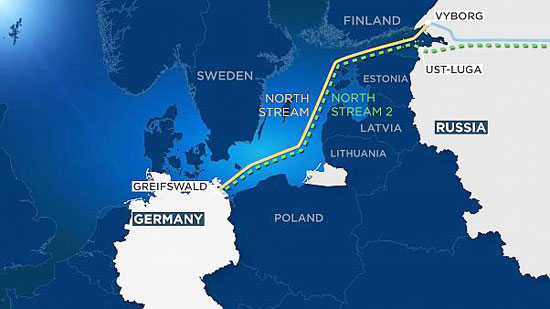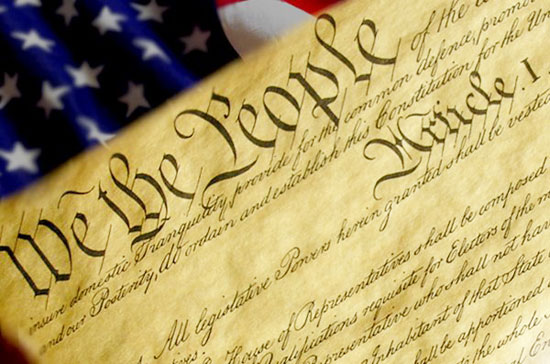EU at the Crossroads: Integration or Disintegration (2)
Read the first part of the article
Fewer, but better, Europeans?
At the same time, the importance of the “Russian threat” cannot be dismissed. The North Stream 2, in particular, became a litmus test on pro-Eurasian vs. pro-Atlanticist attitudes, with the Atlanticists holding sway in countries like Sweden, Poland, Baltic States.

But even here it is not clear whether the Swedish or Polish politicians believe Russia is planning to invade or whether they are cynically using the “Russian treat” card to obtain US support against Germany in their intra-EU power struggles.
Worse, the political fault line demonstrated by the North Stream 2 debate is only one of many running through the EU which cannot achieve greater unity unless it deals with them in one of two ways: forcing peripheral EU countries to toe the line, or, more plausibly, by the “core” EU countries turning inward and developing new institutions without the participation of the more recalcitrant members.
One of the quotes attributed to Joseph Stalin, in the context of the 1930s-era purges of the Communist Party was that, in the future, there would be “fewer, but better, Communists.” Whether or not this quote is apocryphal, it describes the dilemma the European Union is facing. The expansion of the common market was beneficial to the core countries of the EU since it gave them privileged access to the “emerging markets” of Eastern Europe.
On the debit side, the presence of less competitive eastern and southern European economies within the EU (and, in the case of Greece and Spain, even within the Eurozone) has spawned problems preventing the EU from continuing its integration. Open borders between poor and rich countries meant flows of economic migrants from the former to the latter.
The presence of economic migrants has made itself felt in European politics on several occasions, fanning anti-EU sentiments. Thus the so-called “EU Constitution” failed after it was rejected by French voters following a publicity campaign about the dangers of “Polish plumbers”, and likewise the Brexit movement has drawn support from those segments of the UK’s population who find themselves competing for jobs with Eastern Europe’s economic migrants.
At the elite level, the evolution of the EU into a patchwork quilt of countries representing a far wider range of economic development has meant bifurcation of the EU into “permanent donors” and “permanent recipients” of EU funding. The prospect of ad infinitum subsidizing states which do little more than send economic migrants as a sign of thanks no longer sits well with Western European polities.
While the Euroskeptic parties still remain in the minority, their improved showing in recent elections meant that even the mainstream parties are embracing parts of their agendas such as curbs on migration and reductions in the so-called solidarity spending that was intended to blunt the effects of globalization and Eurointegration on the less well developed economies. Brexit would deliver a further blow to these adjustment funds, since Great Britain has been one of the major “donors” to the EU’s common budget.
How the drying up of the EU’s largesse to the less prosperous states will affect EU’s integrity remains to be seen, but it is bound to test pro-Europe sentiments. Since their accession to the EU, the rival political parties in the “EU funding sponge” countries have sought to outdo one another in describing themselves as the more effective magnets for EU funds. Reducing access to these funds will damage their political standing. Consequently, there is a revival of interest in reparations claims against Germany in countries like Greece and Poland for damage wrought by the German occupation during World War 2. This suggests a certain level of desperation as well as of conditionality of Eastern Europe’s commitment to the EU.
Two-Speed Europe
One should expect an effort to solidify the EU “core” even if it means loosening the ties connecting the poorer EU states to the “core”. US experience may serve as a guide, since it represents a relatively successful effort at economic and political integration. The success of the US approach is due to its integration went “deep” before it went “wide”.

The US Constitution was ratified only by the 13 original states. The adoption of the US Constitution meant that individual states ceded their sovereignty to the federal government through the Commerce and Supremacy clauses. When territories applied to join the Union, they had to adapt themselves to the demands of the US Constitution wholesale. By contrast, the European Union went “wide” in seeking to attract as many members as possible, then made feeble attempts to go “deep”. So far these attempts have been unsuccessful and there is no reason to expect they will succeed in the future.
In its current form, the European Union is not even as well integrated as the US was under the unworkable Articles of Confederation, yet it has accepted a far larger number of states that are considerably more heterogeneous in terms of their population size, economic development level, and not to mention the sheer linguistic and cultural diversity, while allowing each member-state to partake of only as much of the Union as they see fit at the moment.
It’s as if individual US states had the ability to decide whether the Commerce or Full Faith and Credit clause should apply to them, or even whether or not to use the US dollar as their sole legal tender.
Continued European integration would demand an agreement on how to transfer national sovereignty to some as yet undefined and untested set of European political institutions that would not only guarantee individual rights but, more importantly from the point of view of national elites, preserve the relative influence of individual EU member states even after they gave up their sovereignty. Even if the Euroskeptics were not such a powerful presence in EU’s politics, it would still be an insurmountable task for even the most visionary and driven group of political leaders. Such a leap is only possible if the number of EU states making it is small, and their level of mutual integration is already high.
The post-2008 Eurozone crisis does appear to have communicated the unsustainability of the current EU integration approach, hence the recent appearance of “two-speeds Europe” concept which actually originated as a warning against the threat of EU bifurcation into well integrated “core “ and a less integrated “periphery”.
In practical terms it would mean “core” countries definitely including Germany and France and possibly Benelux, would abandon the current policy of throwing money at the less well developed EU member states and instead focus on forging “a more perfect Union” consisting of this far more homogeneous and smaller set of countries occupying territories that, over a thousand years ago, formed what used to be known the Carolingian Empire. Like the US territories in the XIX century, EU states outside of the core would have to “pull themselves up by their bootstraps” to earn membership in the core, which would require them to wholesale adopt the core’s political institutions.
The Clarifying Event
At the moment, of course, neither EU’s collapse or further integration in full or truncated form appear likely. As it has done for the past several decades, the European project continues to muddle through by adopting policies just good enough to cope with whatever crisis has just appeared. But what if the next economic crisis approaches the pain levels inflicted by the Great Depression of the 1930s?
An event of this magnitude could not be effectively dealt with using half-measures the European Union is so fond of. It would pose the Union with a stark choice of integration, even in truncated form, or collapse into constituent states and becoming an arena for struggle among the real major powers of the day. Certainly there are enough politicians in Germany and France, and even in smaller European countries, who remember a time their countries or at any rate the continent as a whole ruled the world.
If that choice ever has to be made by Europe’s leaders, one should not automatically assume the seemingly decaying Old World would not rediscover its “will to power” yet again.
yogaesoteric
September 9, 2019
